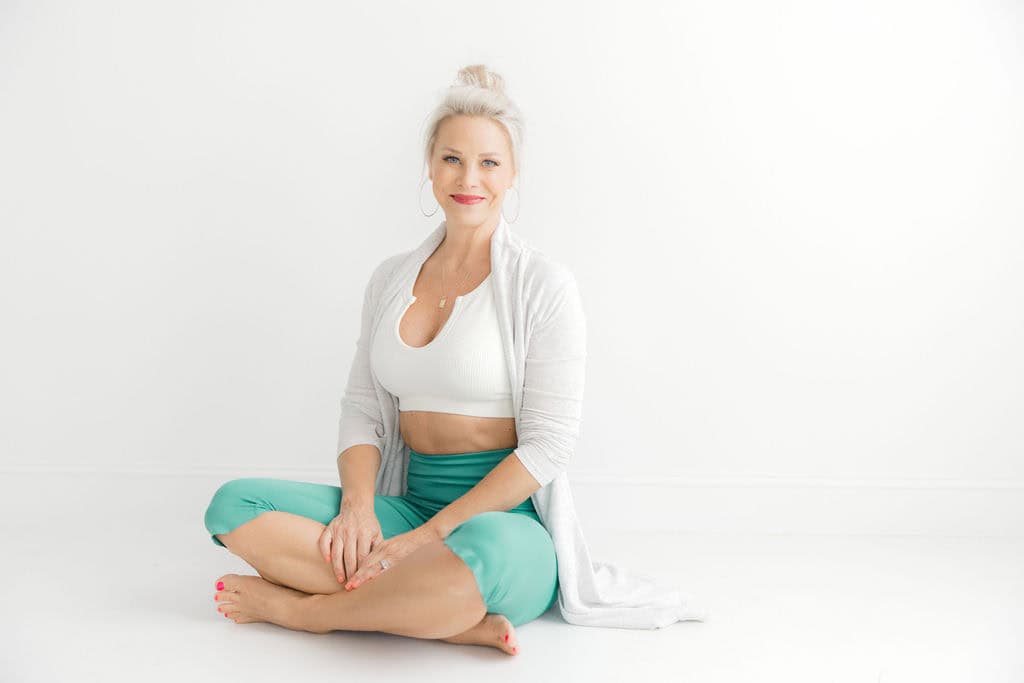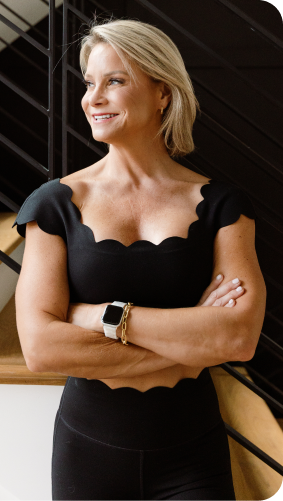In the last 100 years, we’ve lopped off almost 20% of our sleep time. Us Americans are the worst of all. Almost 1 out of every 2 American adults aren’t catching the recommended amount of Z’s a night. About 1 in 3 of us are trying to survive on 6 hours or less. Overall, our country’s average snooze time is just 6.5 hours.
What’s the big deal about fewer hours of sleep? We’re more productive for it, right? Plus, we’ll sleep when we’re dead.
In reality, we’ll actually be dead a lot sooner if we don’t sleep, and the quality of that now shorter life will be significantly worse. Let’s get the Debby Downer details around sleep deprivation over with quick. Then, we’ll talk about what you can do to hack your sleep and boost your health.
The Bad News About Sleep Deprivation
How bad can bad sleep really be? According to Matthew Walker—Professor or Neuroscience and Founder and Directer of the Center for Human Sleep Science—our life literally depends on longer sleep.
The shorter you sleep, the shorter you live. Inadequate sleep predicts an earlier death from any cause.
It’s time to wake up to the truth about poor sleep. Here are a few more frightening facts, according to Matthew Walker, for those of us who are stubbornly sleep-deprived:
Poor Sleep Predicts Alzheimer’s
Insufficient sleep across a lifespan is now recognized as one of the most significant lifestyle factors that determine whether or not you’ll develop Alzheimer’s disease. During sleep, your body cleanses your brain of toxins, including beta-amyloid—one of the leading causes of Alzheimer’s. The less you sleep, the more of that toxic amyloid builds up night after night.
Insufficient Sleep Impairs Immunity
After just one week on 6 hours of sleep, otherwise healthy adults experienced an erosion in the very fabric of their biological life—their DNA code. 711 of their genes were distorted as a result! About half of these genes were immunity genes, and these were switched off. The other half of the distorted genes were ones that promoted tumors, chronic inflammation, stress, and cardiovascular disease — these genes increased in activity.
Crappy Sleep is a Carcinogen
Insufficient sleep is tightly linked to cancer of the bowel, prostate, and breast. The association is so powerful that, recently, the World Health Organization decided to classify any form of nighttime shift work as a probable carcinogen.
Drowsiness is More Dangerous than Drunkenness
After 20 hours of being awake, you’re as impaired cognitively and physical as you would be legally drunk. Drowsy driving kills more people on the roads than either alcohol or drugs combined. In fact, for every 30 seconds you’ve been reading this, there’s been a car accident linked to sleeplessness.
Short Sleep Hits Men Where It Hurts
Men who sleep 5-6 hours a night will have the level of testosterone equal to someone 10 years older. A lack of adequate sleep will age you by a decade in terms of fertility, muscle strength, and sexual performance.
Just One Night of Bad Sleep is Bad for You
The results are fast. We experience a remarkable state of immune deficiency after even just one night of poor sleep. One study found that after one 4-hour night of sleep, participants had a 70% reduction in critical anti-cancer fighting immune cells called “natural killer cells.”
Skipping Even 1 Hour of Sleep Sucks
Twice a year, scientists can observe a global experiment performed on 1.6 billion people across 70 countries. It’s called daylight savings time. In the spring, when we lose an hour of sleep, we see a subsequent 24% increase in heart attacks. In the fall, when we gain an hour of sleep, there’s a 21% decrease in heart attacks.
How Does Sleep Affect My Weight?
Could a lack of sleep be undermining your weight loss efforts? The science says, “Without a doubt!”
Sleep and Hunger
Two hormones control your appetite and weight: Leptin (the full and satisfied hormone) and Ghrelin (the hunger hormone). Even healthy people see a decrease in the full hormone, leptin, and a ramp-up in the hunger hormone, ghrelin, after 1 week on 4-5 hours of nightly sleep.
Sleep and Diet
When we’ve underslept, we not only eat more, but we eat more of the wrong things. People who sleep 5-6 hours a night eat on average between 200-300 extra calories each day. This adds up to about 10-15 pounds of increased body fat each year. Sleep deprived people also eat more heavy-hitting carbohydrates, simple sugars, and processed foods and are low on intaking greens, nuts, and proteins.
Sleep and Exercise
With just 6 hours of sleep, your time to physical exhaustion drops by up to 30%. Lactic acid also builds up quicker in your muscles the less you sleep. Your peak muscle strength, vertical jump height, and running speed decreases with less sleep. Your lungs’ ability to expire carbon dioxide and inhale oxygen decreases too. Athletes who sleep only 5 hours have a 60% increase in probability of injury risk during a season.
Sleep and Body Fat
Your body becomes stingy in giving up its fat when it’s sleep deprived. If you’re dieting and exercising but not getting sufficient sleep, 70% of all the weight that you lose will come from lean body mass (muscle and not fat), which means you end up looking less toned and retain more fat in exchange.
How Much Sleep Do I Really Need?
Sleep is the elixir of life. Its the most widely-available and powerful health boost for humanity. Sleep is:
- The greatest legal performance-enhancing drug that most people are probably neglecting
- Critical for emotional regulation and mental health
- The productivity hack that turns us into creative problem solvers, charismatic leaders, and deep workers
- Our body’s set system to learn new skills faster (one night of sleep will improve your performance by 20-30% the following day)
- Key for a long and healthy life
- Your ticket to easier weight loss
So what’s the minimum amount of sleep you need each night to skip the bad news and reap the rewards?
The sweet sleep spot is 7-9 hours a night. Once we slip below seven hours of sleep, if you could peak through your scull and skin, you’d be able to measure objective impairments to your brain and body.
What about the people claiming they feel great on just 6 hours?
A lack of sleep actually impairs our ability to know how we’re doing objectively. In other words, when we’re sleep deprived, we’re terrible at recognizing that we are sleep deprived.
Thankfully, the scientists can give us an objective perspective. The number of people who can survive on 6 hours of sleep or less a night without showing any impairment is is 0% of the human population. Yup, you heard that right! A super small fraction (less than 1%) of humans have an incredibly rare gene that allows them to survive on about 5 hours of sleep a night without physical and mental consequences. The rest of us—we undeniably need 7-9 hours nightly.
5 Hacks for Better Sleeps
Here are the 5 most powerful changes you can make to improve your sleep, according to a neuroscientist sleep specialist:
- Keep it regular: Go to bed at the same time, wake up at the same time as often as possible.
- Keep it dark: One hour before bed, switch off half the lights in your house and stay away from screens. (Even just 1 hour of screen time before bed delays the release of melatonin—our sleepy hormone—by about 3 hours!)
- Keep it cool: Your brain needs to drop its temperature by about 2 degrees to initiate sleep. Lower the thermostat or wear less layers. A hot shower counterintuitively lowers your body temperature too. It causes a massive thermal dump of heat from your body when you step out of the bath or shower into a cooler room.
- Keep it balanced: Don’t go to bed too full or too hungry. Both can interrupt or shorten sleep.
- Keep simple carbs down: Diets that are high in sugar, heavier in starchy carbohydrates, and low in fiber result in shallow and interrupted sleep.
Open Your Eyes About Getting Shut Eye
Now that you know the science of sleep, you may start to see that sleep is not the third pillar of good health alongside diet and exercise. It’s the foundation on which those two other pillars sit.
If you want to improve your health and boost your weight loss, start with sleep. Try out the five hacks listed above, and make sleep a priority in your health journey.
For more health hacks, join the insider’s crew and get my free weekly newsletter. If you’re ready to take real steps toward your health and weight loss goals, join my 6-week LEAN program today.





